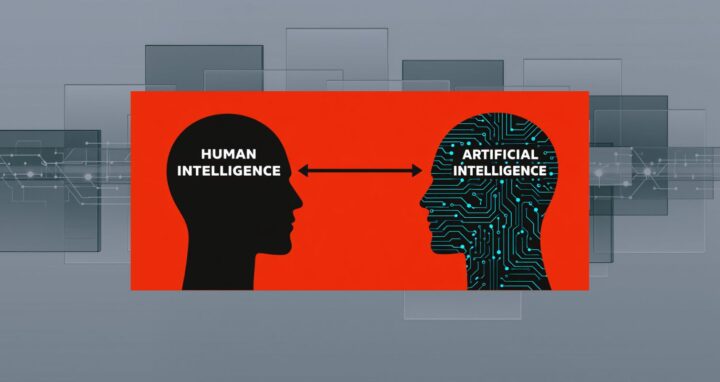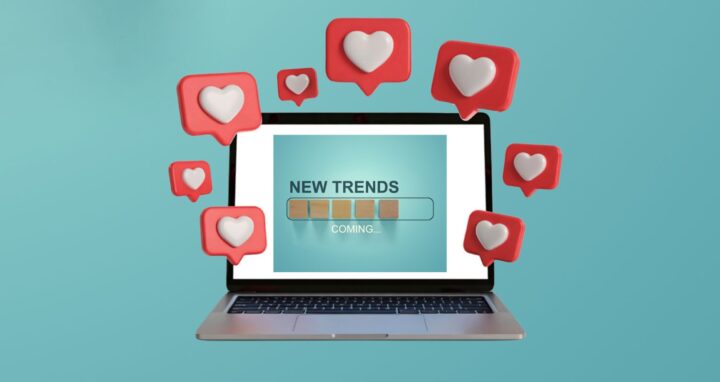In 2025, how is AI going to transform public relations and marketing?
Artificial Intelligence has already begun to transform so many aspects of public relations, marketing and communications. With OpenAI introducing a new feature for 12 days in a row AI, there is not doubt that influence and functionality of AI is not only going to impact what firms deliver to their customers, but also the way PR and marketing companies are run.
The use of AI is not only going to help dissect data, dream up creative or develop and test data-backed messaging strategies, but it will help companies streamline their workflow and profit margins.
Worldcom is already seeing products released by our partners that provide AI-supported business intelligence for customers. Our partners around the globe have contributed their own insights and predictions for what is going to happen next.
In addition to these AI insights, you can also get a full range of predictions from our Partners around the world and download the 2025 Future of Communications eBook.
AI Predictions from Our Partners
How PR Agencies Run
AI Usage Transparency
Clients will start to demand officially for greater transparency on AI usage from agency partners. This may come in the form of indemnity clauses on AI usage in service agreements and contracts. Agencies will also start to put in indemnity clauses on misuse of AI into HR contracts.
Wong Voal Voal, Managing Partner | IN.FOM – Singapore, Singapore
The Impact of AI on Profit Margins and Service Differentiation
As AI continues to evolve, both PR and marketing agencies—and their clients—will experience a shift in the value of certain services. Tasks like media monitoring, social listening, basic reporting, and even content creation—once significant revenue drivers—will be increasingly automated. While this presents opportunities for cost savings, it will also squeeze profit margins for agencies that rely heavily on these routine services. To maintain profitability, agencies will need to focus on delivering more strategic, creative, and high-skill services that can’t be easily automated, such as brand strategy, crisis management, creative campaign development, and complex
data analysis. For clients, this shift means that fees will be more closely tied to outcomes rather than tasks, as AI allows agencies to streamline processes and focus more on delivering higher-value results. Agencies that embrace AI while doubling down on human creativity and strategic insights will be the ones that thrive in this new landscape, delivering huge success for their clients.
Leah Walker, Chief Financial Officer | True Digital Communications – Cleveland, OH USA
AI will Revolutionize Communication, but Human Expertise will Remain Key to Authenticity
Artificial Intelligence (AI) is set to revolutionize communication across industries, becoming an essential tool for handling routine tasks in companies of all sectors. From automating customer service interactions to generating content at scale, AI will streamline many processes, making them more efficient. However, while AI can handle repetitive and data-driven functions, it cannot replace the critical role of communication and PR experts. These professionals will guide companies in crafting authentic, bias-free narratives that resonate with their audiences. Human expertise is essential to ensuring that messaging remains clear, accurate, and aligned with brand values, without falling into errors or unintended bias that AI might produce.
The future of AI in communication will depend on collaboration between technology and human insight, ensuring that businesses communicate effectively, ethically, and with the nuance needed to maintain trust and engagement in a rapidly evolving digital landscape.
Angélica Consiglio, CEO | Planin Comunicação – São Paulo, Brazil
AI in PR: Kick-Off for a New Quality Offensive in 2025
2025 will be a year in which we in the PR industry will not only work more efficiently thanks to AI, but also with higher quality. From AI-powered real-time analysis for strategic planning to automated and customized content creation, to early risk assessment in crisis management – across the entire spectrum of PR activities, AI tools will free us from time-consuming routine tasks and free up capacity for the essentials. For example, developing innovative and creative campaigns or building key relationships with media, stakeholders and influencers.
The year 2025 belongs to communications professionals who combine human intuition with machine precision. Those who make strategic use of this dream team will not only keep pace, but actively shape and improve the quality of the communications landscape.
Nathalie Schön, Consultant | BCC Business Communications Consulting – Frankfurt on the Main, Germany
AI and Regulations Shaping Communication Strategies
Communication strategies are increasingly being shaped by regulations such as ESG requirements and new European technology frameworks, including the AI Act, DORA, and NIS 2. These regulations will not only require organizations to meet legal standards but also foster trust with clients, business partners, and stakeholders by ensuring that their messaging aligns with expectations around security, sustainability, and transparency. Authenticity and transparency will be paramount, particularly in sustainability communications, impacting both large enterprises and SMEs.
As AI continues to transform the public relations and communications landscape, securing sensitive data and maintaining transparency around AI usage will become critical. With more companies adopting AI-based solutions, there will be a growing expectation for clear, responsible communication regarding the application of AI technologies. The emphasis on authenticity is intensifying, especially as organizations confront the risks and limitations of AI-generated content.
Natalia Cygan, PR Manager | SAROTA PR – Kraków Poland
AI’s Rise in Marketing Sparks Consumer Trust Challenges, Driving Demand for PR Expertise and Ethical Content Strategies
As AI becomes more prevalent in marketing, addressing consumer trust and confidence will pose a significant challenge, requiring the expertise of PR specialists. Many consumers already expect AI to negatively impact social channels, fearing that AI-driven content generators could spread false or misleading information. This concern is high, especially regarding the potential for misinformation on social platforms. Some key brands will prioritize authenticity and ethics, appealing to a segment of consumers who value AI-free interactions. To safeguard their reputations, organizations must implement measures to ensure content authenticity and establish responsible AI use guidelines. The lack of frameworks and best practices necessitates transparency, compelling brands to demand clear policies from vendors and partners while integrating safeguards into their technology to build and maintain trust.
Eduarda Lopes, Partner | Planin Comunicação – São Paulo, Brazil
What PR Firms Deliver
Rise of Generative AI Tools
The rise of generative AI tools in content creation will revolutionize personalization, enabling brands to deliver hyper-targeted messaging to individual consumers. By 2025, AI is expected to be a critical tool in delivering custom content at scale, enhancing customer journeys, and building stronger connections.
Stefan Pollack, President | The Pollack Group – Los Angeles, California, USA
2025 PR Game Changers: AI Tools for Content Development and Data Analytics
In the coming year, we will see technology companies integrate AI and data analytics in more meaningful ways. PR teams will shift from experimenting with AI to using these tools for more precise audience targeting and content generation. These tools will enable PR professionals to expedite the delivery of tailored content across channels and improve the accuracy of reaching their customers and prospects. We will also see a major uptick in the integration of data analytics to inform more strategic decision-making for PR programs.
This will result in improved trend identification, audience segmentation, content optimization, sentiment analysis, and ultimately, integrated campaign measurement. Together, AI and data analytics will reshape how PR campaigns are planned and executed, offering greater precision and actionable insight.
Hally Wax, Senior Vice President | Raffetto Herman Strategic Communications – Seattle, Washington, USA
AI Agents Will Fundamentally Change Marketing Automation
Marketing Automation, as we know it today, will look a lot different a year from now due to the increased use of AI Agents – which are computer programs that use AI to perform tasks autonomously. Rather than setting up a linear automation step by step, we will give the AI a loose set of rules, ideal trigger situations, and the goals we want it to achieve. From there, the AI will learn, adapt, and use other AI systems to complete the task. As you can imagine, this will open up a magnitude of new use cases for automation and increase productivity across marketing teams.
Wayne Silasi, Digital Marketing Lead | True Digital Communications – Cleveland, OH USA
Creativity will be as Imperative as AI Technology
There is no sure way to predict exactly how AI will take over public relations and marketing because it will do things we haven’t dreamed about. However, it is important to understand the real value of great public relations and marketing is the poetry that is created from the swift minds of incredible thinkers. Social and AI growth means the pace and onslaught will be forever growing. Finding a partner who can protect and elevate your brand / reputation in the swift waters of AI technology will be the best asset to handle whatever is down the road.
Linda Groendyke, Content Development | Worldcom Public Relations Group
“Human” Technology to Deeper Connect Brand with Their Audiences
Brands will have the opportunity to forge deeper connections with their audiences by crafting immersive experiences driven by technology and innovation. AI, Virtual Reality and Augmented Reality can strengthen brand-consumer relationships through customized storytelling as long as they enhance (rather than replace) real-world experiences. These innovative ways of communication, still emerging in many markets, will have the potential to drive consumer
engagement. However, for this to be effective, brands must uphold authenticity and human connection, ensuring that technology facilitates rather than dehumanizes their interactions. In a time when consumers are becoming more discerning about their choices, prioritizing values such as empathy, transparency, and human connection will be key to earning trust.
Cinzia Sartori, Associate Director | BPRESS – Milan, Italy
As AI Takes Over, Personal Relationships will Shine
As AI advances, genuine human connections will become ever more apparent, with people seeking and cherishing moments of authentic interaction, empathy, and shared experience that no algorithm can truly replicate. Forward-thinking companies will recognize that while AI can handle routine interactions and tasks with efficiency, it’s the authentic engagement between individuals, teams and clients that build lasting relationships. Human connections and conversations offer personalized experiences that go beyond what AI can provide.
Chris Baldwin, Chief Visionary Officer | True Digital Communications – Cleveland, OH USA




